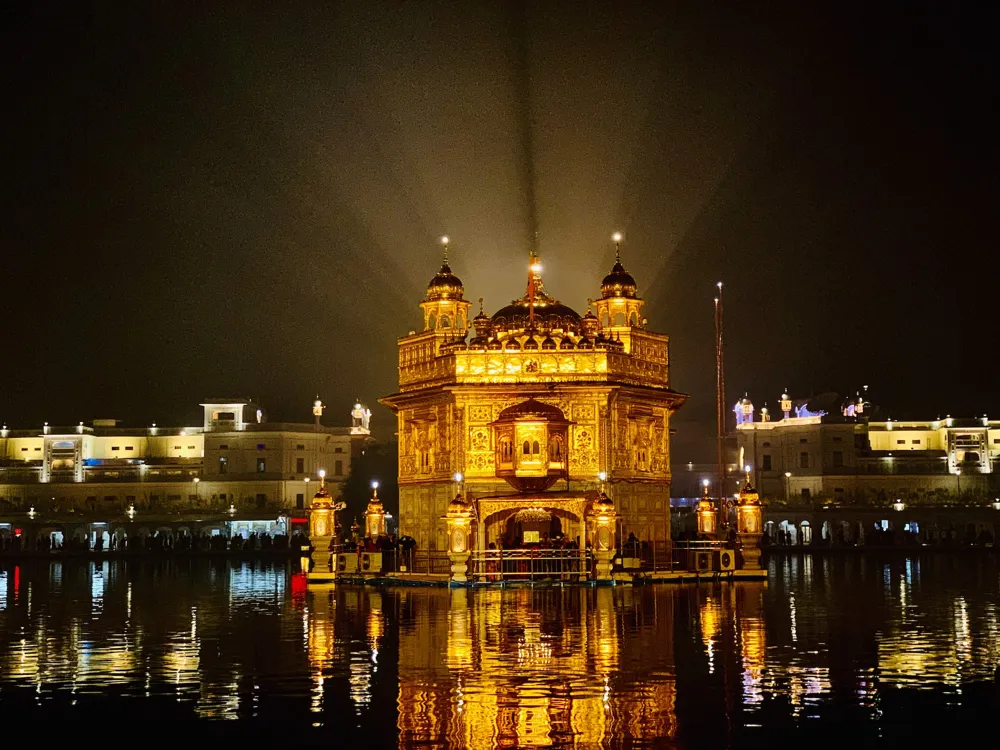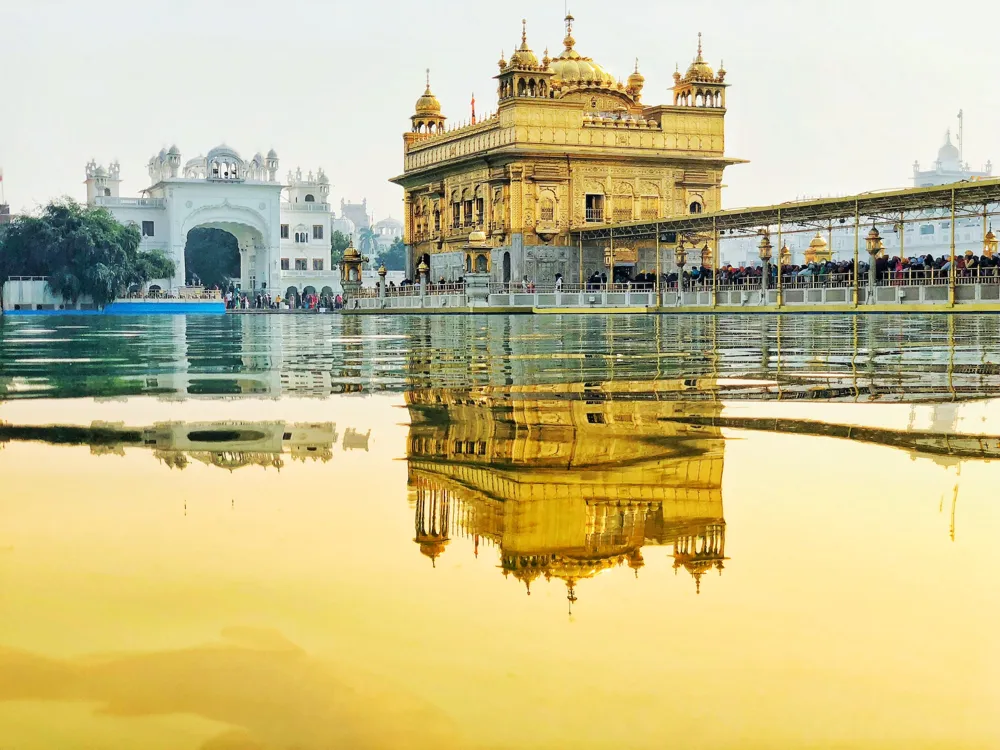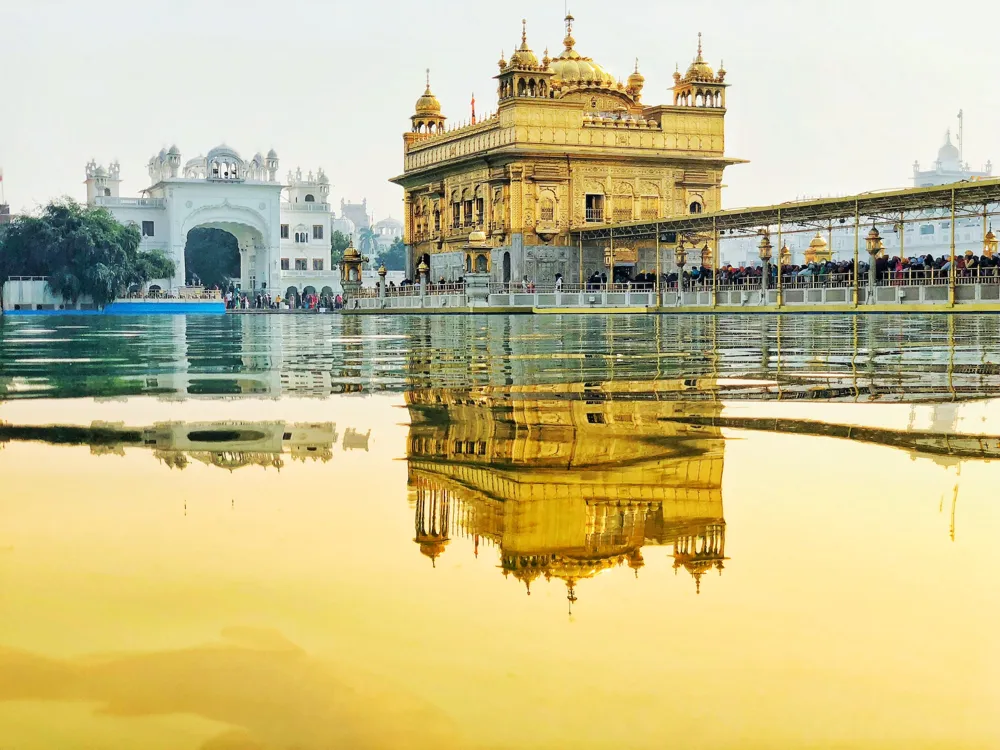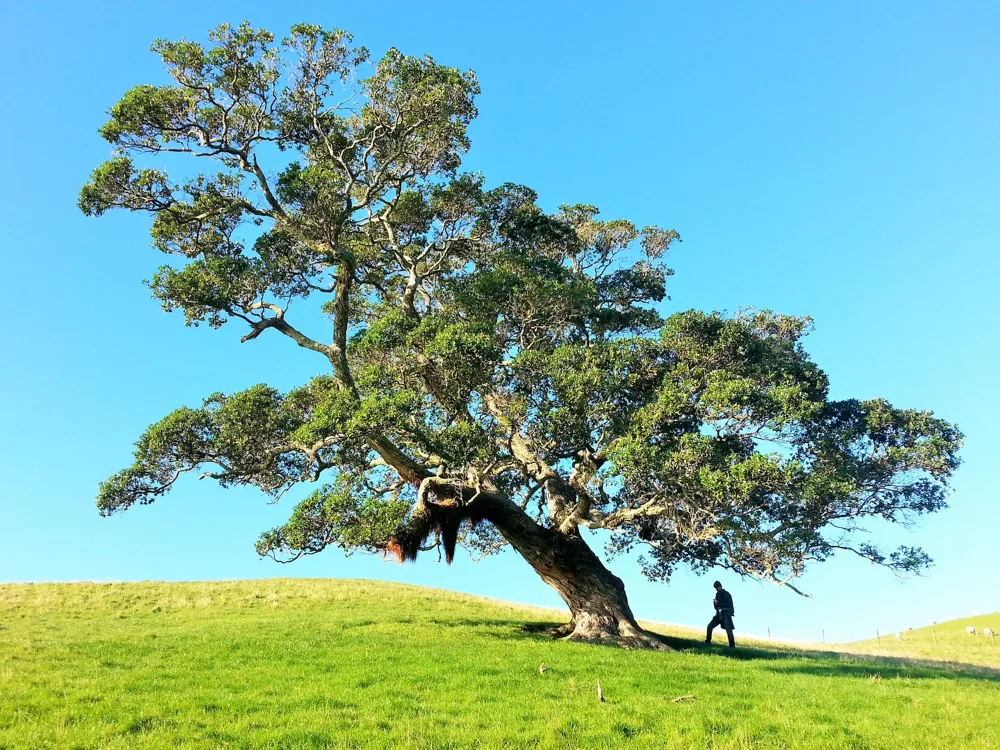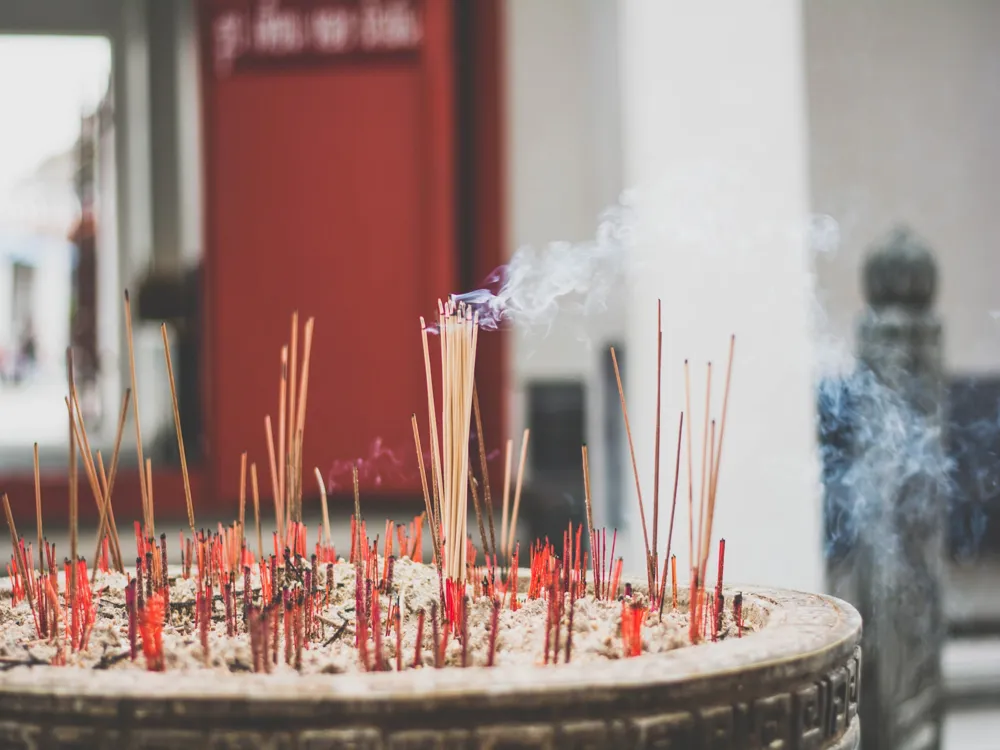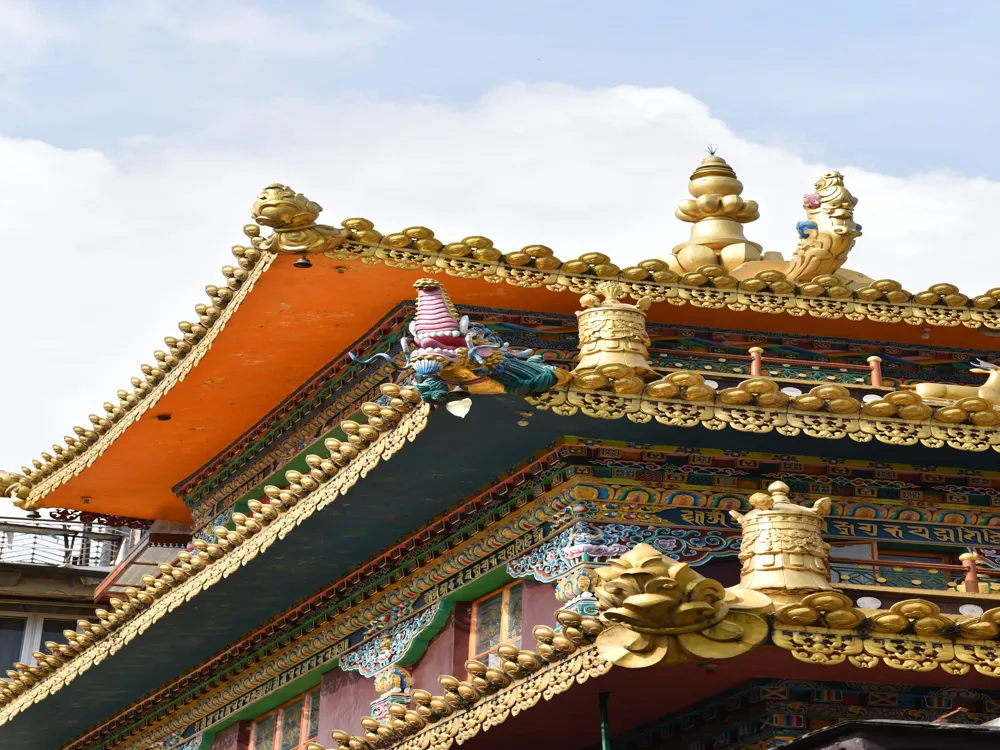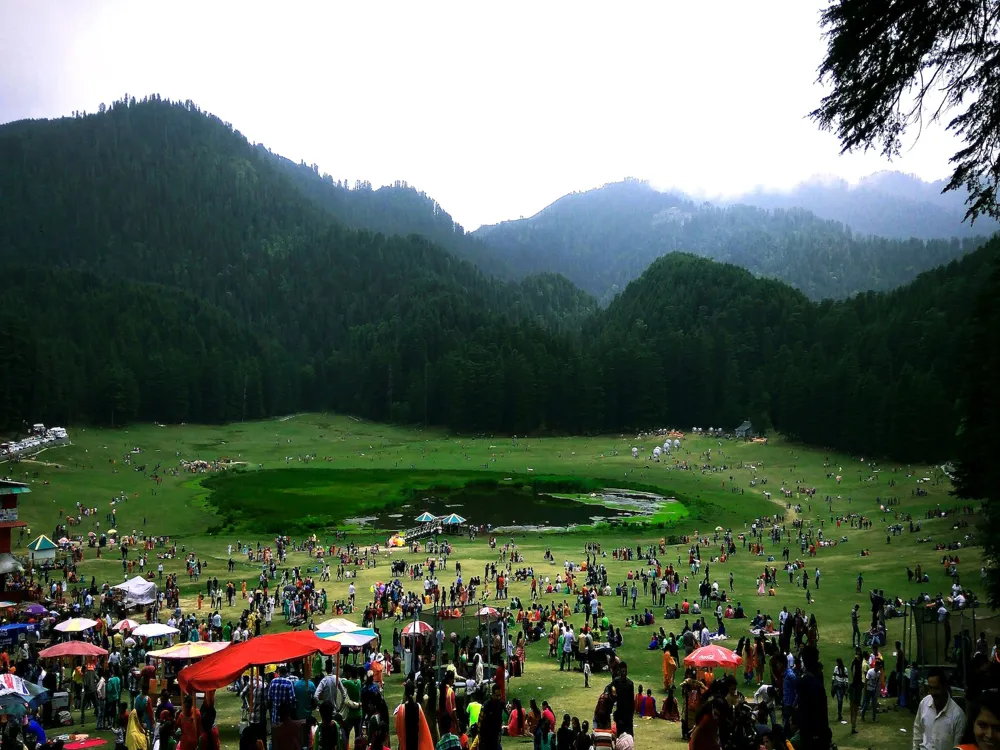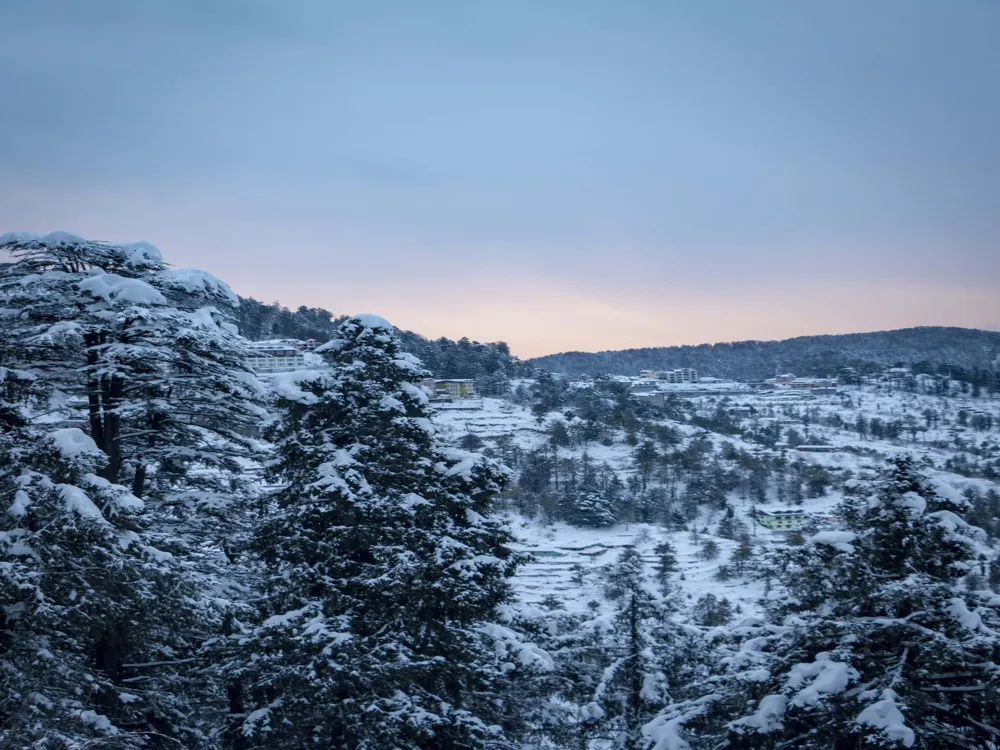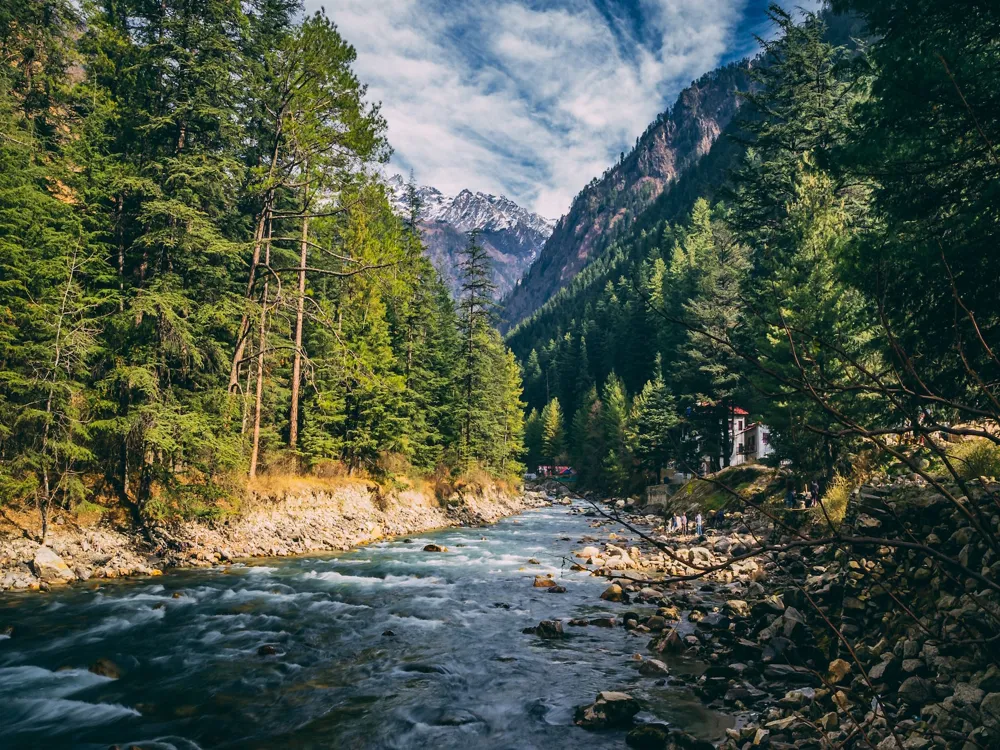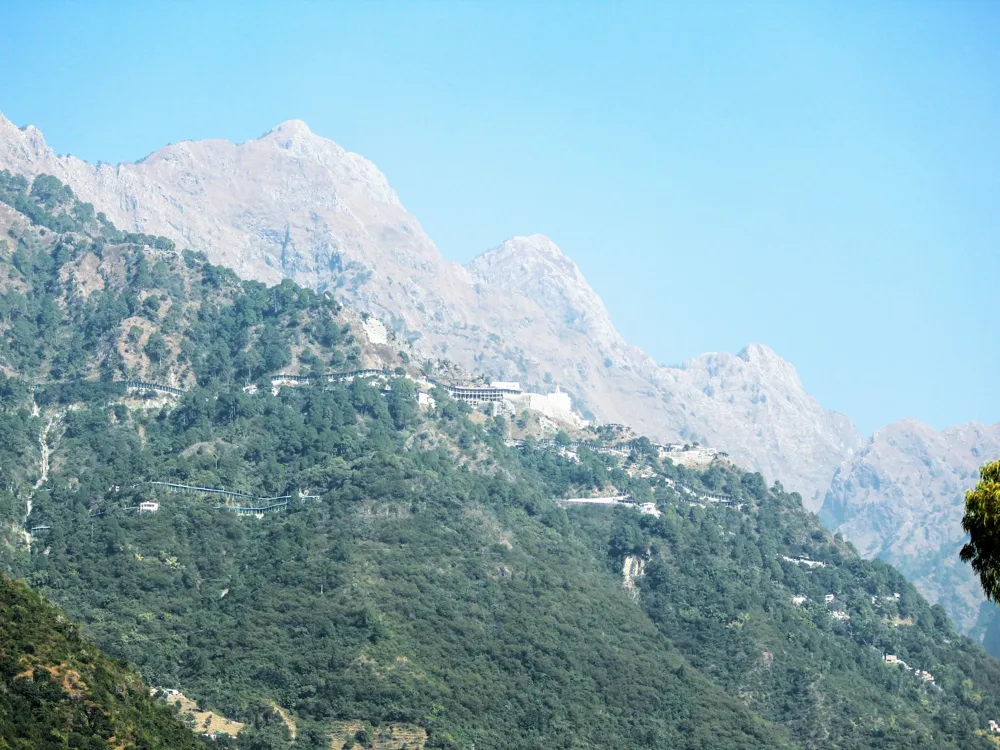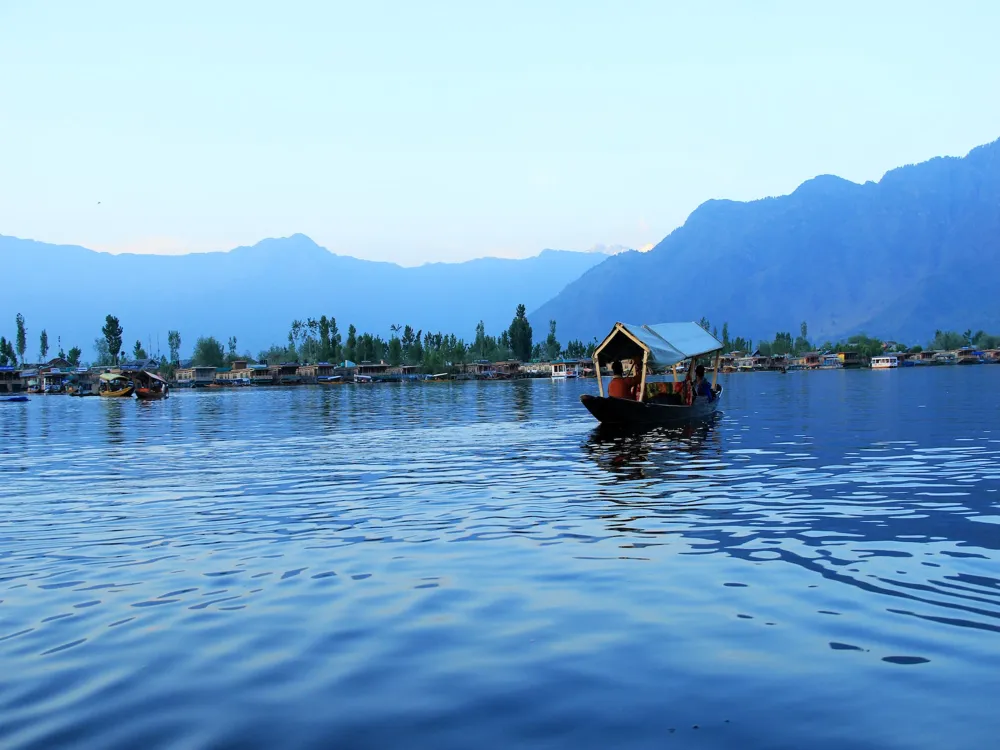Gurudwara Bibeksar Sahib, located in Amritsar, Punjab, is a significant Sikh shrine with a rich history. Revered for its spiritual ambiance, the Gurudwara stands by a serene lake, offering a tranquil retreat for devotees and visitors alike. It was established by the fifth Sikh Guru, Guru Arjan Dev Ji, and holds immense religious importance in Sikhism. The architecture of Gurudwara Bibeksar Sahib is a splendid example of Sikh architectural traditions. It features an elegant blend of Mughal and Rajput styles, with intricate designs and an impressive dome. The white marble structure, adorned with frescoes and floral patterns, overlooks the Bibeksar Sarovar, enhancing its spiritual and aesthetic appeal. Dress modestly and cover your head at all times within the Gurudwara premises. Avoid loud conversations and maintain the sanctity of the place. Remove your shoes before entering the Gurudwara. Wash your hands and feet if required. It's customary to make an offering, though not obligatory. The Gurudwara hosts a community kitchen called 'Langar'. Visitors are welcome to partake in the meals, which are free and vegetarian. Volunteering in Langar service is also encouraged. Gurudwara Bibeksar Sahib is easily accessible from various parts of Amritsar. The nearest airport is Sri Guru Ram Dass Jee International Airport, about 13 km away. Amritsar Railway Station is the closest railhead, situated about 3 km from the Gurudwara. Local transportation like taxis and auto-rickshaws are readily available to reach the Gurudwara. Read MoreOverview of Gurudwara Bibeksar Sahib, Amritsar
Architecture of Gurudwara Bibeksar Sahib
Tips When Visiting Gurudwara Bibeksar Sahib
General Guidelines
Etiquette
Participation in Langar
How To Reach Gurudwara Bibeksar Sahib
Gurudwara Bibeksar Sahib
Amritsar
Punjab
₹ 5,500 onwards
View amritsar Packages
Weather :
Tags : Gurudwara
Timings : 5:00 AM to 10:00 PM
What You Should Know :
- Cover your head with a scarf or handkerchief like cloth
- Put off your shoes before you enter the Gurudwara premises
- Langar is served daily to those who visit the Gurudwara
Planning a Trip? Ask Your Question
Amritsar Travel Packages
View All Packages For Amritsar
Top Hotel Collections for Amritsar

Private Pool

Luxury Hotels

5-Star Hotels

Pet Friendly
Top Hotels Near Amritsar
Other Top Ranking Places In Amritsar
View All Places To Visit In amritsar
Faq on Amritsar
What is Gurudwara Bibeksar Sahib Amritsar?
Gurudwara Bibeksar Sahib Amritsar is a prominent Sikh religious site located in the city of Amritsar, Punjab, India. It holds significant historical and religious importance in Sikhism.
What is the significance of Gurudwara Bibeksar Sahib?
Gurudwara Bibeksar Sahib is revered by Sikhs as the place where Guru Hargobind Sahib, the sixth Sikh Guru, used to meditate. It is believed that Guru Hargobind Sahib would come here to contemplate and impart spiritual teachings to his followers.
What are the main features of Gurudwara Bibeksar Sahib?
The main features of Gurudwara Bibeksar Sahib include its serene surroundings, the holy sarovar (pool of water), the beautiful architecture of the gurdwara building, and the peaceful ambiance that attracts devotees and visitors alike.
When was Gurudwara Bibeksar Sahib constructed?
Gurudwara Bibeksar Sahib was established in the early 17th century during the time of Guru Hargobind Sahib. Over the years, it has undergone renovations and expansions to accommodate the growing number of pilgrims.
What rituals and ceremonies take place at Gurudwara Bibeksar Sahib?
Various rituals and ceremonies, such as daily prayers (Nitnem), Kirtan (devotional singing), Langar (community kitchen serving free meals), and Akhand Path (continuous reading of the Guru Granth Sahib), are performed at Gurudwara Bibeksar Sahib. Special events and celebrations also occur during Sikh festivals and important occasions.
View amritsar Packages
Weather :
Tags : Gurudwara
Timings : 5:00 AM to 10:00 PM
What You Should Know :
- Cover your head with a scarf or handkerchief like cloth
- Put off your shoes before you enter the Gurudwara premises
- Langar is served daily to those who visit the Gurudwara
Planning a Trip? Ask Your Question
Amritsar Travel Packages
View All Packages For Amritsar
Top Hotel Collections for Amritsar

Private Pool

Luxury Hotels

5-Star Hotels

Pet Friendly
Top Hotels Near Amritsar
Other Top Ranking Places In Amritsar
Faq on Amritsar
What is Gurudwara Bibeksar Sahib Amritsar?
Gurudwara Bibeksar Sahib Amritsar is a prominent Sikh religious site located in the city of Amritsar, Punjab, India. It holds significant historical and religious importance in Sikhism.
What is the significance of Gurudwara Bibeksar Sahib?
Gurudwara Bibeksar Sahib is revered by Sikhs as the place where Guru Hargobind Sahib, the sixth Sikh Guru, used to meditate. It is believed that Guru Hargobind Sahib would come here to contemplate and impart spiritual teachings to his followers.
What are the main features of Gurudwara Bibeksar Sahib?
The main features of Gurudwara Bibeksar Sahib include its serene surroundings, the holy sarovar (pool of water), the beautiful architecture of the gurdwara building, and the peaceful ambiance that attracts devotees and visitors alike.
When was Gurudwara Bibeksar Sahib constructed?
Gurudwara Bibeksar Sahib was established in the early 17th century during the time of Guru Hargobind Sahib. Over the years, it has undergone renovations and expansions to accommodate the growing number of pilgrims.
What rituals and ceremonies take place at Gurudwara Bibeksar Sahib?
Various rituals and ceremonies, such as daily prayers (Nitnem), Kirtan (devotional singing), Langar (community kitchen serving free meals), and Akhand Path (continuous reading of the Guru Granth Sahib), are performed at Gurudwara Bibeksar Sahib. Special events and celebrations also occur during Sikh festivals and important occasions.







